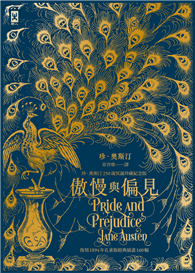Passion’s Fictions traces the intimate links between literature and the sciences of mind and soul from the age of Shakespeare to the rise of the novel. It chronicles the emergence of new sciences of the passions between the sixteenth and eighteenth centuries, and it argues that this history was shaped by rhetoric that contained the most extensively particularized discourse on the passions, offering principles for moving and affecting the passions of others in concrete social scenes. This rhetoric of the passions centered on narrative as the instrument of a non-theoretical knowledge of the passions in their particularity, predicated on an account of passion as an intimate relation between an impassioned mind and an impassioning world: rhetoric offers a kind of externalist psychology, formalized in the relation of passion to action and underwriting an account of narrative as a means of both moving passion and knowing it.
This volume describes the psychology of the passions before the discipline of psychology, tracing the influence of rhetoric on theories of the passions from Francis Bacon to Adam Smith and using that history to read literary works by Shakespeare, Milton, Haywood, Richardson, and others. Narrative offers a means of knowing and moving the passions by tracing them to the events and objects that generate them; the history of narrative practices is thus a key part of the history of the psychology of the passions at a critical moment in its development.| FindBook |
有 1 項符合
Passion’’s Fictions from Shakespeare to Richardson: Literature and the Sciences of Soul and Mind的圖書 |
 |
Passion’’s Fictions from Shakespeare to Richardson: Literature and the Sciences of Soul and Mind 作者:Robinson 出版社:Oxford University Press, USA 出版日期:2021-07-27 語言:英文 規格:精裝 / 272頁 / 普通級/ 初版 |
| 圖書館借閱 |
| 國家圖書館 | 全國圖書書目資訊網 | 國立公共資訊圖書館 | 電子書服務平台 | MetaCat 跨館整合查詢 |
| 臺北市立圖書館 | 新北市立圖書館 | 基隆市公共圖書館 | 桃園市立圖書館 | 新竹縣公共圖書館 |
| 苗栗縣立圖書館 | 臺中市立圖書館 | 彰化縣公共圖書館 | 南投縣文化局 | 雲林縣公共圖書館 |
| 嘉義縣圖書館 | 臺南市立圖書館 | 高雄市立圖書館 | 屏東縣公共圖書館 | 宜蘭縣公共圖書館 |
| 花蓮縣文化局 | 臺東縣文化處 |
|
|
圖書介紹 - 資料來源:博客來 評分:
圖書名稱:Passion’’s Fictions from Shakespeare to Richardson: Literature and the Sciences of Soul and Mind
內容簡介
作者簡介
Benedict S. Robinson, Associate Professor of English, Stony Brook University
|











